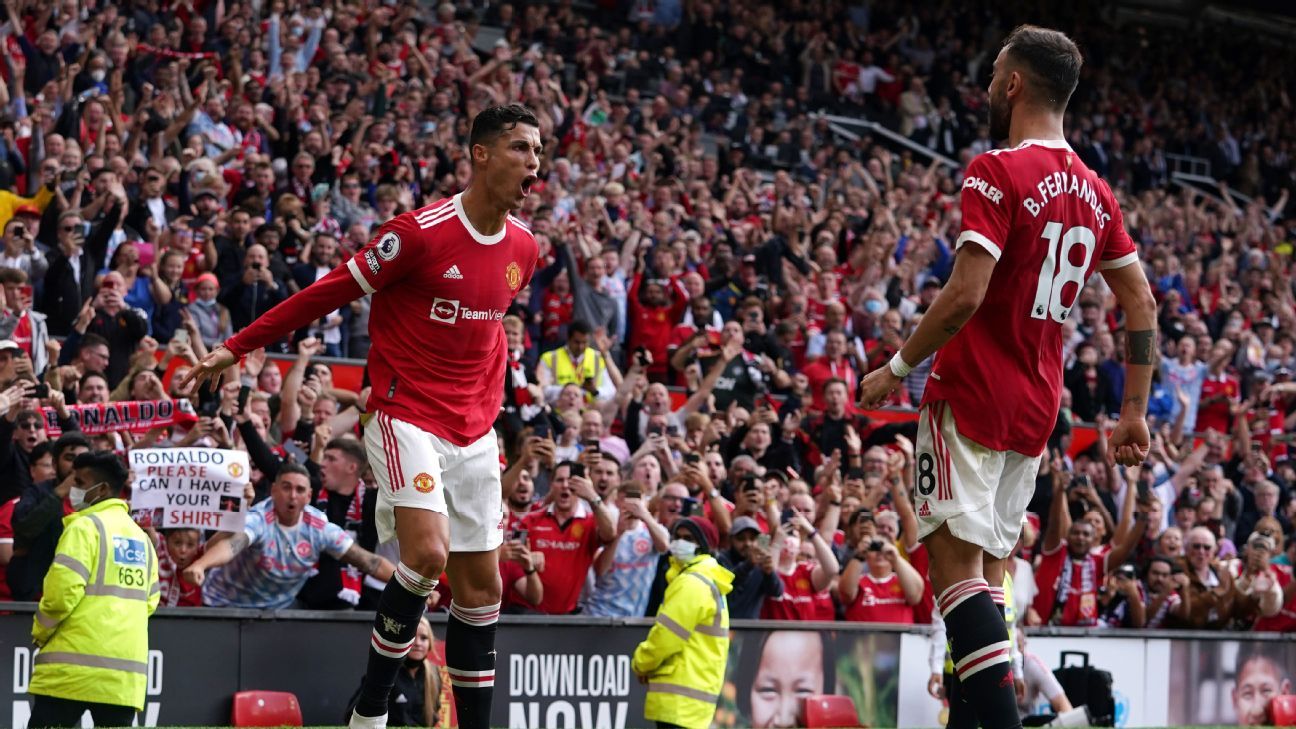The European soccer weekend was full of highs and lows, ups and downs — as per usual. Cristiano Ronaldo returned to Manchester United and looked great, Antoine Griezmann returned to Atletico Madrid and didn’t. The Bundesliga’s best team, Bayern Munich, humiliated their closest rivals, RB Leipzig, while Serie A’s previous force, Juventus, looked woefully off-form and out of balance in their defeat to Napoli. Elsewhere, we saw fun from AS Roma (and Jose Mourinho), end-to-end drama for Borussia Dortmund and Arsenal got their first win of the season!
– ESPN+ viewers’ guide: LaLiga, Bundesliga, MLS, FA Cup, more
– Stream ESPN FC Daily on ESPN+ (U.S. only)
– Don’t have ESPN? Get instant access
It’s Monday, and Gab Marcotti reacts to the biggest moments in the world of football in a special international break edition of his musings.
Jump to: Ronaldo returns | Juve in trouble? | Real Madrid switch it up | Bayern’s statement | Mourinho wild at Roma | Dortmund’s issues | Silva key for Man City | Donnarumma’s PSG debut | Spurs stutter | Inter’s draw | Saul struggles for Chelsea | Griezmann’s uneven Atletico return | Arsenal win! | Milan’s “Plan C”
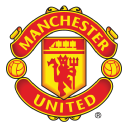 Ronaldo’s (second) debut for Man United told us plenty we already knew … and maybe one thing we didn’t
Ronaldo’s (second) debut for Man United told us plenty we already knew … and maybe one thing we didn’t
My colleague Julien Laurens and former France international Mikael Silvestre were watching Cristiano Ronaldo warm up ahead of Manchester United‘s game against Newcastle on Saturday, which marked his return to the Premier League. Silvestre, who spent five years with Ronaldo at Old Trafford, commented on how “nervous” he looked in the warm-up. And Ronaldo himself, after the game, confirmed just how nervous he felt in the moments preceding the game.
That was one new thing I learned: Ronaldo gets nervous, too, and maybe, at 36, he’s comfortable enough with himself and his achievements to share the fact that he’s human and suffers stage fright like the rest of us. Wrapped up in the ceaseless hype that follows him everywhere — whether the goals, the Instagram, the thronging crowds, the abs, the “Siuuu!” or the smirk — and having trod the big stage for the past 18 years, I wasn’t sure anything made him nervous. It’s nice to know that he also gets the butterflies.
Other than that, I’m not sure there’s much we learned from the 4-1 win over Newcastle. Ronaldo lined up at center-forward with Jadon Sancho and Mason Greenwood out wide, Bruno Fernandes in the hole and Paul Pogba in deep midfield. He drifted left on many occasions, he was a continuous aerial threat (though United didn’t quite get as many crosses into the box as you imagine Ole Gunnar Solskjaer would have liked), he was sharp and alert in punishing a goalkeeping error on the first goal and his movement in dead ball situations was excellent.
He scored twice — with a little help from Newcastle goalkeeper Freddie Woodman — and, despite the prematch jitters, handled the pressure with aplomb. And he lifted the entire crowd to levels not seen at Old Trafford since they had a Scottish manager (no, not David Moyes, the other one).
1:34
Julien Laurens recalls his conversation with Mikael Silvestre when they were watching Cristiano Ronaldo warm up.
We knew all that, just as we knew that, yes, he’s very fit and, when he can get up a head of steam, he’s very fast too.
The English media were impressed that he clocked a maximum speed of 20.2 miles an hour (32.5 kmh) ahead of his second goal, but that wasn’t exactly a surprise to anybody who has watched him. If you’re a world-class athlete who takes care of his body, you don’t suddenly lose your speed — especially over longer distances — as you hit your mid-30s. What you do lose, perhaps, is the quick acceleration over the first few meters and the stamina to pull off a few dozen high intensity sprints over 90 minutes.
Newcastle sat so deep for much of the game that there was little reason or opportunity for Ronaldo to show off his wheels. In fact, Steve Bruce’s de facto 7-2-1 formation meant this game unfolded in a way that’s likely to be very different from most of the matches Ronaldo will play this season. United had a ton of the ball as the opposition looked to counter, which suited Pogba, deployed in a two-man midfield, just fine.
Most weeks, you presume, it won’t be like that. United won’t have 65 percent possession and the opposition will play a higher line. The former raises the question of whether Pogba can be shoe-horned into a two-man midfield, the latter whether the front line can muster enough of a threat in terms of running in behind and stretching the opposition defence. We’ll find out soon enough, as Saturday was never going to answer those questions.
 One point in three games was no problem for Juventus six years ago, but this time, it’s different
One point in three games was no problem for Juventus six years ago, but this time, it’s different
Juventus’ 2-1 defeat at Napoli makes it one point from three games for the bianconeri. And if you were of a superstitious disposition (or a foolish disposition), you may conclude that it’s not a big deal. After all, six seasons ago, with the very same Max Allegri on the bench, Juventus had an identical start before going on to win 26 of their final 28 games and the Serie A title.
Well, it’s not a big deal, but not for the reasons stated above that, like most historical reasons, are irrelevant. (Why we think events that took place years ago, with different players and different circumstances, should impact the present is beyond me.)
Rather, it’s not a big deal — or not as big a deal — because of the way we got to these results.
1:18
Gab Marcotti examines Juventus’ winless start in Serie A after a 2-1 defeat at Napoli.
Things don’t just happen in a vacuum. It’s not a question of excuses; it’s a question of explanations. Juventus were awful and deserved to lose to Empoli. In the opener, and in this game against Napoli, they paid a price for individual errors: Wojciech Szczesny was the villain in both, Moise Kean played a big part in the latter game. When an ordinarily reliable player makes such extreme, craven mistakes, you chalk it up to happenstance and move on.
You imagine that’s how Allegri is viewing it, which doesn’t change the fact that Juve didn’t play particularly well either — especially in midfield, which remains a problem area. The many absentees (Federico Chiesa, Paulo Dybala, Alex Sandro, Danilo, etc) are mitigating factors, as is, I guess, the fact that it takes some time to adjust to Cristiano Ronaldo’s departure. But the dysfunction in the middle of the park is very real right now, and fixing it has to be priority number one.
Beyond that, now that Ronaldo is gone, the road ahead is pretty clear. Juve need to reload through youth and keep improving the players they have. That means Chiesa, Dejan Kulusevski, Matthijs De Ligt and Manuel Locatelli… hopefully it will mean Kean, Weston McKennie and Rodrigo Bentancur too. If it means another year without competing for Serie A, so be it.
A word on Napoli, too. They also had some significant absentees, but the difference is that this group is deep and resilient: witness the way they weren’t fazed by Kostas Manolas‘ blunder that led to Alvaro Morata’s opening goal. If they can harness the immense upside of Victor Osimhen, not let Lorenzo Insigne‘s contract be a distraction and channel what Luciano Spalletti might call their “inner Koulibalys,” they’ll compete for the Serie A title. Maybe more, too.
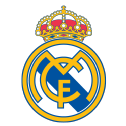 Real Madrid switch it up and roll to big win
Real Madrid switch it up and roll to big win
1:43
Alejandro Moreno examines Vinicius Jr.’s rise at Real Madrid after another goal in a 5-2 win vs. Celta Vigo.
The interesting thing about Real Madrid’s 5-2 victory over Celta Vigo — other than the fact that the craven defensive blunders haven’t gone away — was the way manager Carlo Ancelotti set them up, perhaps in an attempt to get the best out of Eden Hazard.
In many ways, it looked more like a 4-4-2, with Vinicius down the left, Hazard joining Karim Benzema up front and Fede Valverde on the right. Of course, this isn’t table-football and players do move around: Valverde wasn’t exactly a wide midfielder and Vinicius played higher up the pitch.
But the interesting aspect is Hazard. He wasn’t on the right wing for much of the game, but instead buzzed around Benzema and, often, joined Vinicius (and left-back Miguel) out on the left flank. It’s an asymmetrical set-up that might yet coax some more consistent performances from Hazard. Many Real Madrid fans view him as a bust, but the reality is he has a huge contract and the club are on the hook for him for another three years, so you might as well find a way to make it work.
Beyond that, Vinicius — so often criticised for his poor finishing — was as cool as the other side of the pillow (RIP, Stuart Scott) in slotting his goal home and continues to grow, while Eduardo Camavinga made his debut and scored: plenty to come from the teenager. Oh, and Benzema got a hat-trick of goals and recorded an assist, confirming once again he may well be the best 9 and the best 10 on this team. (But that last bit isn’t really news…)
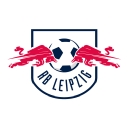
 Bayern win over Leipzig makes yet another statement…
Bayern win over Leipzig makes yet another statement…
… and that statement is that they don’t need to be at their best to go and whip the backside of the team that finished second to them last season. Bayern’s 4-1 victory over Leipzig was deserved, and it was perhaps especially important for Julian Nagelsmann on his homecoming to the side he coached last year.
The early goal — a Robert Lewandowski penalty — set them on their way, but what was striking was how they remained cool and waited for the counter, even as they suffered against Jesse Marsch’s press in midfield on occasion. They did enough to limit Leipzig offensively — their lone goal was an out-of-the-blue long-range strike by Konrad Laimer — and then made them pay in transition.
Jamal Musiala was, again, close to unplayable at times after coming on at half-time. He scored one and had a hand in the other two while playing with the calm of a veteran. He even coaxed a five-star performance out of Leroy Sane (who has blown hot and cold of late) on the opposite wing. On a day when Bayern’s midfield partnership of Joshua Kimmich and Leon Goretzka were subdued by their own standards, the transition game and the back line more than picked up the slack. And that bodes well for the future.{C}
 Mourinho’s Roma win a wild one and he regresses to 2004
Mourinho’s Roma win a wild one and he regresses to 2004
Say this for Jose Mourinho: He can’t always read the room, but when he gets it right, he gets it very right. When Stephan El Shaarawy‘s sumptuous injury-time finish made it 2-1 to Roma against Sassuolo, the Stadio Olimpico erupted. El Shaarawy, Lorenzo Pellegrini, Tammy Abraham and others raced under the “curva” to celebrate with supporters and so too did Mourinho, embarking on the sort of lung-bursting wide-eyed, open-armed sprint most of us saw for the first time when his Porto team upset Manchester United way back in 2004.
It was emotional, it was gutsy and Roma fans loved it. The victory also somewhat overshadowed a less-than-brilliant performance against a Sassuolo side that, but for goalkeeper Rui Patricio and VAR (the latter ruling out Gianluca Scamacca‘s even more dramatic 2-2), might have scored five times.
No matter. Mourinho sits atop Serie A with 3 wins from 3 games (five in five, if you count the Europa Conference League, and it’s a safe bet that he does) and, just as important, he seems to have total buy-in from fans and local media alike.
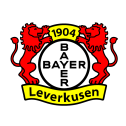
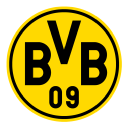 Dortmund rollercoaster win might be fun for neutrals, less so for Marco Rose
Dortmund rollercoaster win might be fun for neutrals, less so for Marco Rose
Borussia Dortmund came from behind three times to win 4-3 away at Bayer Leverkusen in a wild, breathless game. It was the sort of match that non-football fans would have enjoyed — the kind marketing folk and social media mavens would love, too.
Teenage sensation/next-big-thing Florian Wirtz scored one and set up another. Erling Haaland scored a rare header. Julian Brandt scored against his former club. Moussa Diaby whiffed completely on a shot and, in so doing, created space for a long-range finish that will Iive on YouTube forever. Raphael Guerreiro converted one of the best free kicks you’ll see this year. There were two big VAR calls, one ruling out a goal, the other giving Haaland the chance to score the injury time winner from the spot.
So yeah, in terms of incidents and spectacle, this had it all. But it was also a reminder that Marco Rose doesn’t have a handle on this Borussia Dortmund team quite yet.
If you play a diamond midfield you have to forgo wingers, which is fine if your midfield are disciplined and have a sense of position off the ball. Dortmund’s did not, which left an already questionable central defence exposed far more than you’d like. And while you don’t necessarily need to play a possession game to be entertaining or effective, it helps if, occasionally, you vary things and try to dictate play. We saw very little of that.
This was fun, but other than reminding you that Dortmund are talented and gritty (which we already knew), it did nothing to give you much confidence going forward. Either Rose hasn’t yet gotten them to buy into his plan, or his plan leaves a lot to be desired.
1:19
Sebastian Salazar and Janusz Michallik discuss Manchester City’s 1-0 victory against Leicester City.
If clubs had depth charts, you’d imagine Bernardo Silva would pop up as second or third-choice out wide or in attacking midfield for Manchester City. He didn’t have the best campaign last year, was heavily linked with a move out in the summer, and most would put him behind Kevin De Bruyne, Phil Foden, Raheem Sterling, Riyad Mahrez and the newly arrived Jack Grealish.
In those circumstances, you can either sulk or you can make yourself useful. He chose the latter, combining well with Grealish, making the attacking central midfield position (the one normally occupied by De Bruyne or Foden) his own and slotting home the goal that beat Leicester City in what turned out to be a very tough match. Pep Guardiola’s crew created plenty, but Leicester held firm and had a goal disallowed for the sort of tight offside that, on a bad day, goes the other way.
Silva isn’t blessed with pace, but he has plenty of intelligence, work ethic and creativity to make up for it, which is why his future may well be in the middle. In short, he’s the sort of guy you want to keep around, whether as a starter or as a reserve. Use him correctly, and he won’t let you down.
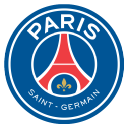 No problems for “depleted” PSG as Donnarumma debuts
No problems for “depleted” PSG as Donnarumma debuts
Paris Saint-Germain took the pitch against Clermont without their CONMEBOL contingent of Neymar, Angel Di Mario, Leandro Paredes, Keylor Navas and, of course, Lionel Messi. It didn’t make much of a difference as Ander Herrera, of all people, delivered two first-half goals en route a to a 4-0 pasting.
The novelty of this game was Gianluigi Donnarumma‘s debut after his big free agent move and, to be fair, he had little to do. So far, Donnarumma, named player of the tournament at Euro 2020, has been all smiles and has said all the right things despite playing only in Navas’ absence. Navas too has chucked out the usual platitudes about competition being great and so on.
You wonder, absent some kind of rotation (which would be weird, not least because the two keepers are so different in terms of style), how long this will last and whether one of the two No. 1s might go out on loan, if not in January then next summer, with the World Cup approaching.
 Injury-riddled Spurs plummet as Kane disappears
Injury-riddled Spurs plummet as Kane disappears
1:09
Janusz Michallik says Tottenham’s defensive disasters made it easy for Crystal Palace.
After the last game, I wondered how Spurs had won three of three games without conceding a single goal, and with the likes of Yaphet Tanganga, Eric Dier, Oliver Skipp and Davinson Sanchez in the lineup. This weekend, with Sanchez out (along with Heung-Min Son, Steven Bergwijn, Cristian Romero and Giovani Lo Celso), Dier coming off injured after 12 minutes and Tanganga getting sent off at the hour mark, Tottenham somehow hung in there against Palace until 15 minutes from time before succumbing 3-0.
More than the defensive issues, what strikes you is the Harry Kane stat. He somehow managed to record not just zero shots, but also zero touches in the opposition area. It’s obviously not all on him; either somebody gets him the ball (which wasn’t happening as Spurs’ midfield was abysmal), or he has to come back into midfield to get it (in which case he won’t be in the area).
It’s best to withhold judgement until the starters are once again available. You don’t want to think that this Tottenham is anything like the real thing.
 Inter draw after Inzaghi makes five subs in 15 minutes and finishes with 10 men
Inter draw after Inzaghi makes five subs in 15 minutes and finishes with 10 men
I like the fact that in most leagues, managers can make five substitutions, partly because we have a congested calendar and partly because it can change games. Inter’s Simone Inzaghi took it to an extreme in the 2-2 draw against Sampdoria on Sunday. Inter created chances and generally had the upper hand throughout the first half against an opponent that sat and looked to hit on the break. But after Samp equalised early in the second half, Inzaghi turned to the subs, using all five between minute 54 and minute 69.
It’s not the reason Inter failed to win — they weren’t great, but they did create opportunities — but it made for an entirely choppy finale, especially after substitute Stefano Sensi was forced to come off through injury, leaving them to finish with 10 men.
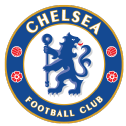 Result over performance for Chelsea in Saul’s debut
Result over performance for Chelsea in Saul’s debut
1:52
Shaka Hislop breaks down Chelsea’s 3-0 win vs. Aston Villa, including two goals from Romelu Lukaku.
Chelsea’s 3-0 win over Aston Villa was a minimalist, professional affair, as Aston Villa outplayed them for long stretches and Edouard Mendy was forced to make some big saves. The post-international break blues (what was once called FIFA virus) no doubt contributed to this, as a number of regulars were out (plus it was a sterling Villa performance), but that’s the thing with Chelsea under Thomas Tuchel: they don’t need to create tons of chances to win.
On the flipside, deadline day signing Saul had a difficult start in the middle of the park and, indeed, Chelsea looked better once Jorginho replaced him at half-time.
Perhaps it was predictable. After seven years at Atletico Madrid, adjusting to a new country and a new league (and a manager, Tuchel, who is very different to Simeone) will take time. The good news for Chelsea is that they can take their time with Saul and leave him as the fourth option out of their four central midfielders until he’s ready.
 Griezmann fluffs debut, but late, late, LATE goal powers Atletico to victory
Griezmann fluffs debut, but late, late, LATE goal powers Atletico to victory
0:49
Alejandro Moreno reacts to another narrow win for Atletico Madrid, as the LaLiga champions beat Espanyol 2-1.
Antoine Griezmann made his (second) debut for Atletico Madrid, lining up with Luis Suarez and Angel Correa against Espanyol, but struggled to make an impact. Evidently, it will take more time for him to find his bearings in what is a new set-up at his former team, but what stood out for Atletico (not for the first time) is the team’s resilience and depth.
One-nil down at the break, Simeone redrew the team with three half-time substitutions, as Thomas Lemar, Geoffrey Kondogbia and Renan Lodi replaced Kieran Trippier, Mario Hermoso and Correa. Business picked up, they began to create more, they got the equaliser and then, in the 10th minute of injury time, Lemar (who was excellent) grabbed the winner. Espanyol obviously weren’t happy with the referee giving that much added time, but given the frequent breaks and a long VAR decision, it wasn’t unjustified. (Of course, if we got rid of the running clock and played two 30-minute halves, we wouldn’t have these issues, but that’s a discussion for another time.)
Atletico may be the deepest team in LaLiga in the sense that they have so many interchangeable players. But it takes a sharp tactical mind to know when and how to make the changes.
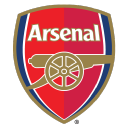 Arsenal break the ice and notch first win of the season
Arsenal break the ice and notch first win of the season
1:13
Janusz Michallik assesses Arsenal’s first win of the Premier League season, a narrow 1-0 over Norwich.
Arsenal’s 1-0 win over Norwich was far more one-sided than the scoreline suggests, and that’s significant for Mikel Arteta. After three straight defeats, he didn’t just need a win, he needed a performance and he got it. Arsenal created plenty and conceded little, the latter perhaps not a surprise given that there’s a serious gulf between Takehiro Tomoyasu, Ben White and Gabriel compared to the folks who were playing at the back before them.
Other than central midfield — where you expect a fully fit Thomas Partey to regain his place, and probably Granit Xhaka too — this side looked a lot like you imagine Arteta’s first-choice XI might look (OK, maybe you can shoehorn Emile Smith Rowe in there somewhere). Norwich didn’t provide much opposition, but you could see patterns of play and even confidence on the pitch, two things that had been lacking previous games.
Arteta’s not out of the woods yet; he needs another credible performance against Burnley and then something from the North London Derby to avoid another uncomfortable international break. But this was encouraging.
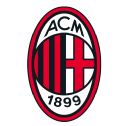 Milan’s “Plan C” too good for Lazio
Milan’s “Plan C” too good for Lazio
Maybe it’s a bit unkind, but if Zlatan Ibrahimovic is Plan A (he wouldn’t have it any other way) and Olivier Giroud is Plan B (and he’s acquitted himself well so far), then Plan C is what we saw on Sunday in the 2-0 win over Lazio: Ante Rebic through the middle with Rafael Leao cutting inside. It worked a treat, as Milan dominated and created plenty of chances.
Getting the best out of Leao — who is still just 22 — is a priority for Milan this year, and he showed just what he can do if given the opportunity and the right set-up. Of course, there was also space for Ibrahimovic. He returned from injury to make his first appearance of the season, played the last half hour and scored a tap-in, almost as if to remind the young bucks on his team that he won’t be existing stage left any time soon.
